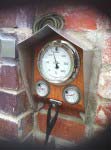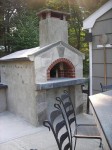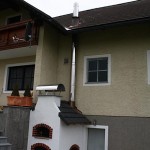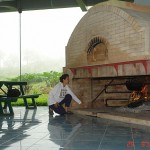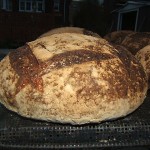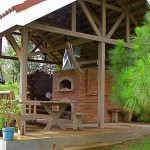back to board Main Page
brick oven vs. pre-formed
From the WFO board
Posted by grafica
Rado, this is a great site and you have put soooo much work into it! I am sure many people really appreciate the lengths you have gone to in providing so much detail.
I have room for a wood-burning oven in a place where we want to remove an existing fireplace. It wouldn't be outside, and would require knowledgeable hookups to the existing chimney, along with building permits (since we would have to break through a wall for the back of the oven to extend into another space). So for these reasons it wouldn't be a do-it-yourself project for us.
Options would be 1. (most common and cheapest) having someone install the type of oven that comes as a shell made out of several pieces of pre-formed refractory cement.
2.) purchase and have installed a pre-made brick oven (from Naples; most expensive solution, though we are in Italy, so shipping is less of an issue).
3.) hire local people to build a brick one (unsure of experience and materials in this case)
I am hoping Rado or someone on the forum can give us some guidance.
I have heard that the pre-formed cement ovens can lose their heat-retention capacities over time and need to be replaced. Is this a concern only for restaurants that have the ovens going several hours a day, every day? We would probably use the oven no more than once or twice a week.
I have also heard that site-built brick ovens by anyone less-than-expert will be less efficient (use more fuel; lose more heat) than pre-formed refractory or pre-made brick ovens.
Do we need to take any of these things into consideration when planning for our indoor home oven?
Thanks in advance!

Jamie and Katrina's brick oven with temperature gauge, in Victoria.
Concrete blocks used for the oven’s outer walls. By Joe in Connecticut USA
Wood fired family oven and chimney project by Robert in Austria
My oven with fireplace, cook food and heat water, by Joel in Philippines
Baking sourdough breads in quantity in Canada
Pizza oven and hut built by Tony in Philippines
